The A-Z of Brexit
- Published
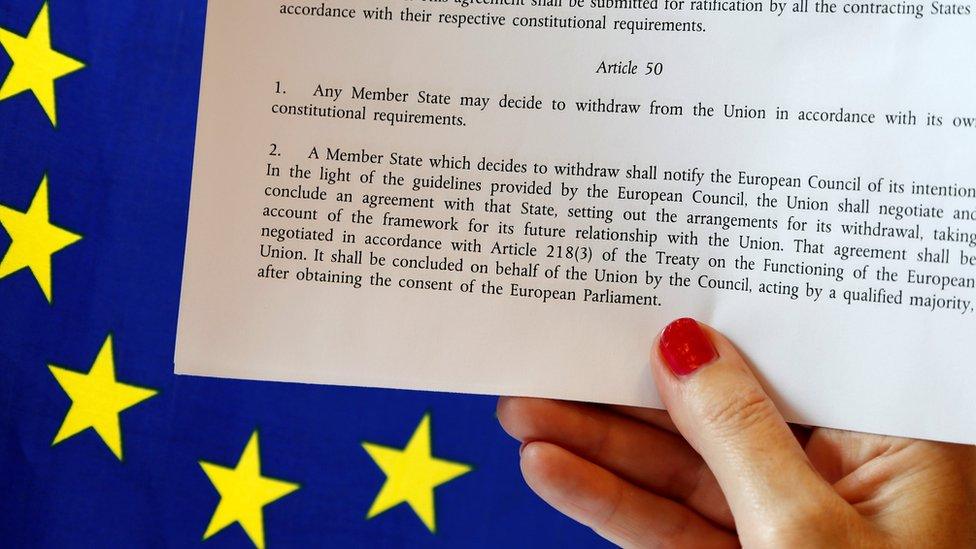
"Brexit means Brexit" is something we've all heard many times. But it's still not entirely clear what it actually means. If you're feeling lost, help is at hand: here's our handy guide to the A-Z of Brexit.
A: Article 50
Known as the "exit clause", Article 50 sets out the process the UK will go through to leave the European Union.
It sets the clock ticking on negotiations, giving a deadline of two years before the UK's membership of the EU ends - unless all EU member states' leaders vote unanimously to extend that period.
It says that any deal negotiated between the UK and EU will come down to a vote of European leaders, where it will need to be passed by a qualified majority and passed by the European Parliament.
B: Barnier
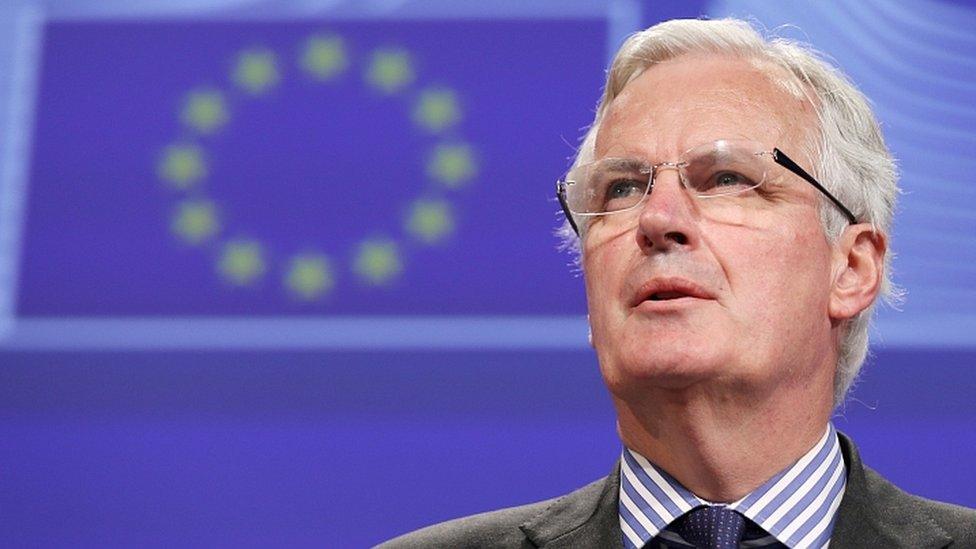
Previously tasked with cleaning up the continent's financial services, Michel Barnier is the European Commission's chief Brexit negotiator.
He's a politician with a long career as an MEP, vice-president of the centre-right European People's Party, French foreign minister, and European commissioner.
Mr Barnier is also known for not being keen on giving interviews in English. At the height of the eurozone crisis he implied this policy was led by caution, saying: "One wrong word, and we could move markets."
C: European Council
The European Council, external is made up of the 28 EU heads of government, plus the European Council President Donald Tusk and European Commission President Jean-Claude Juncker.
The council doesn't make laws, but the heads of EU governments can vote on the union's political direction through a process that weights their votes according to the size of the country they represent.
Although Prime Minister Theresa May represents the UK on the council, she won't attend any meetings or votes it holds on the subject of Brexit negotiations after Article 50 is triggered.
D: DexEU
More properly known as the Department for Exiting the European Union, DexEU is the government department responsible for the UK's negotiations with the EU.
It is led by David Davis. The department will conduct negotiations on Brexit with the EU, as well as talking to individual states about bilateral agreements after the UK leaves the EU.
E: Experts
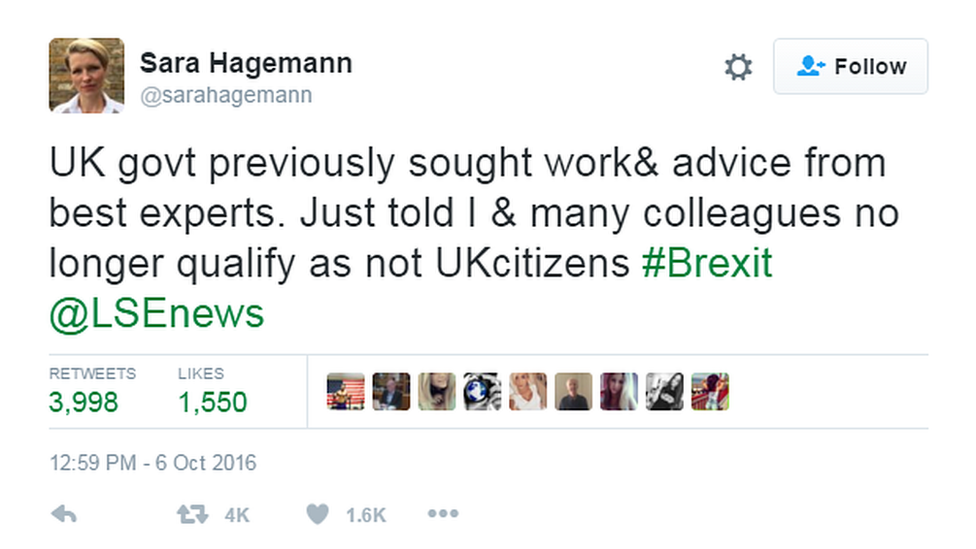
Academic Sara Hagemann, who is Danish, said she had been told she could no longer advise the government on Brexit.
Leave campaigner Michael Gove made waves during the EU referendum campaign when he claimed Britain had "had enough of experts.", external
More recently, academics at the London School of Economics said that Foreign Office officials had told them non-UK nationals would no longer be able to brief the department on issues relating to Brexit.
The FCO insisted that it was a misunderstanding, saying "We will continue to take advice from the best and brightest minds, regardless of nationality."
F: Free trade
Trading with other countries without customs duties, import bans or quotas is the goal of International Trade Secretary Liam Fox, who has previously said that free trade "transformed the world for the better".
EU membership means the UK isn't allowed to make its own deals with other countries - deals like the Ceta free trade agreement signed between Canada and the EU after seven years of negotiations.
But opponents of free trade deals like Ceta and the proposed TTIP deal between the EU and US have claimed that the deals harm workers' rights and damage environmental safeguards.
G: Greenland
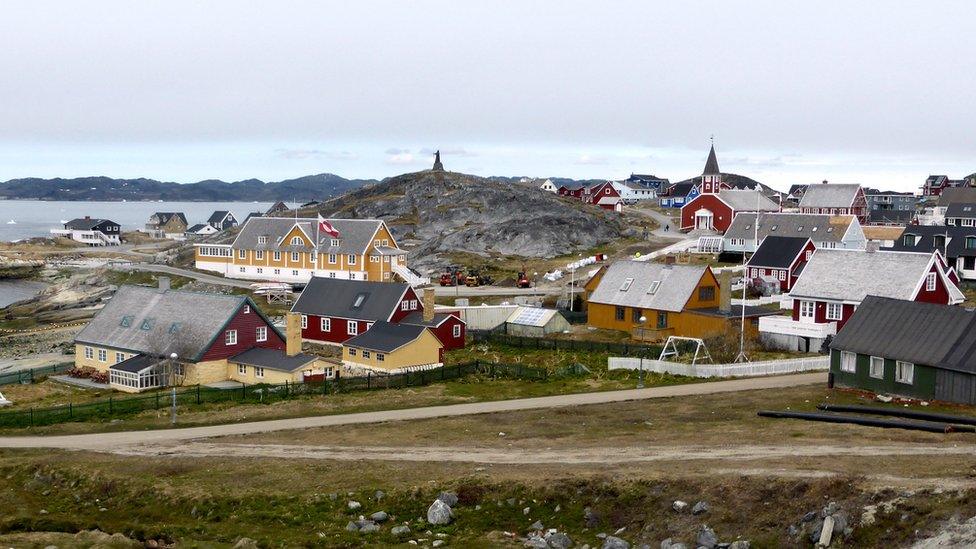
Nuuk, the capital of Greenland
Greenland provided the closest thing Brexit has to a precedent when it left the European Economic Community - a precursor to the EU - in 1982.
Greenlandic objections to its membership to the EEC, as part of the Kingdom of Denmark, centred on the Common Fisheries Policy which allowed European trawlers to fish in its waters.
Since then, Greenland's fishermen have fared better than its fur industry, which since 2010 has been barred from selling any seal products within the EU.
H: Hard Brexit
The style of Brexit favoured by campaigners like Nigel Farage, "hard Brexit" would entail the UK leaving the European single market.
It would allow the British government more direct control over policies on immigration, but may mean tariffs on exports to the EU.
It's often presented as the opposite of "soft Brexit", which sees the UK remain in the EU single market - potentially having to accept EU rules like freedom of movement as a part of the deal.
I: Independence day
Nigel Farage said 23 June should go down in history as the UK's "independence day" in commemoration of the vote to leave the EU.
But a petition, external calling for a national holiday on 23 June received a negative response from the government, which said it had "no current plans to create another public holiday" because of the economic cost of days off.
J: Juncker
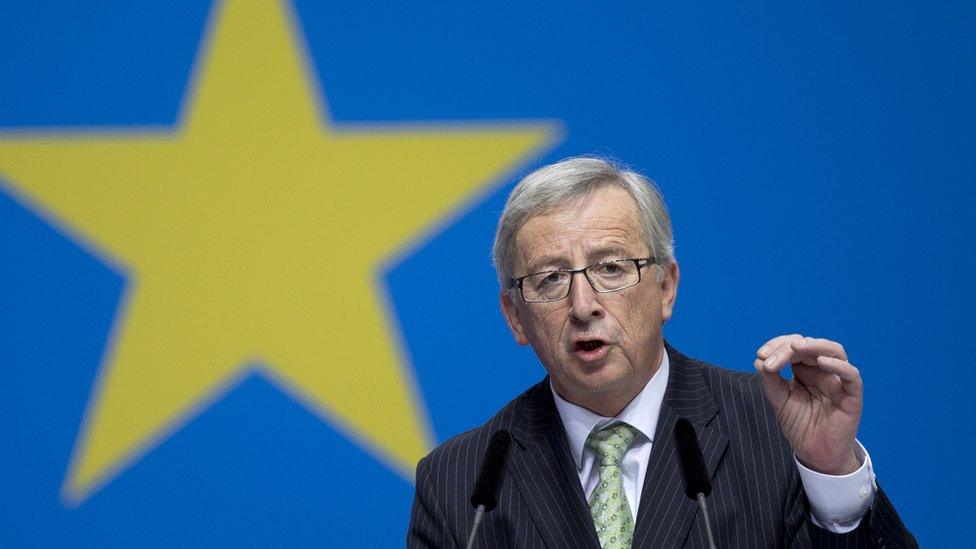
Former Prime Minister of Luxembourg and President of the European Commission Jean Claude Juncker will be a key figure during the Article 50 negotiations with the EU.
Before the vote to leave, Mr Juncker warned the UK that "out is out", and that there would be no way back.
The European Commission is the EU body that will carry out much of the negotiating between the EU and UK, before a final deal is approved by the European Council's 27 non-UK EU leaders.
K: Kremlin
It's reported the Russian government of Vladimir Putin may stand to gain from Brexit, as the UK's decision to leave the EU could distract from its sanctions against Russia.
Former Bulgarian President Rosen Plevneliev said the UK had supported a harder line on EU-Russian relations.
Mr Plevneliev said: "If Brexit is going to be a divorce, we should stay the best possible and the closest friends."
L: Lisbon Treaty
Lord Kerr says Article 50 was drawn up in the event of a coup
Ratified in 2009, the Lisbon Treaty aimed to streamline the EU's decision making process following a period of expansion that saw membership grow.
It created the post of President of the European Council (currently held by Poland's Donald Tusk) and expanded the use of the proportional qualified majority voting system that awarded votes according to the size of a member state.
The Lisbon Treaty also contains Article 50 - drafted by Scottish peer Lord Kerr - the mechanism that dictates the way in which a member state can leave the EU.
M: Merkel
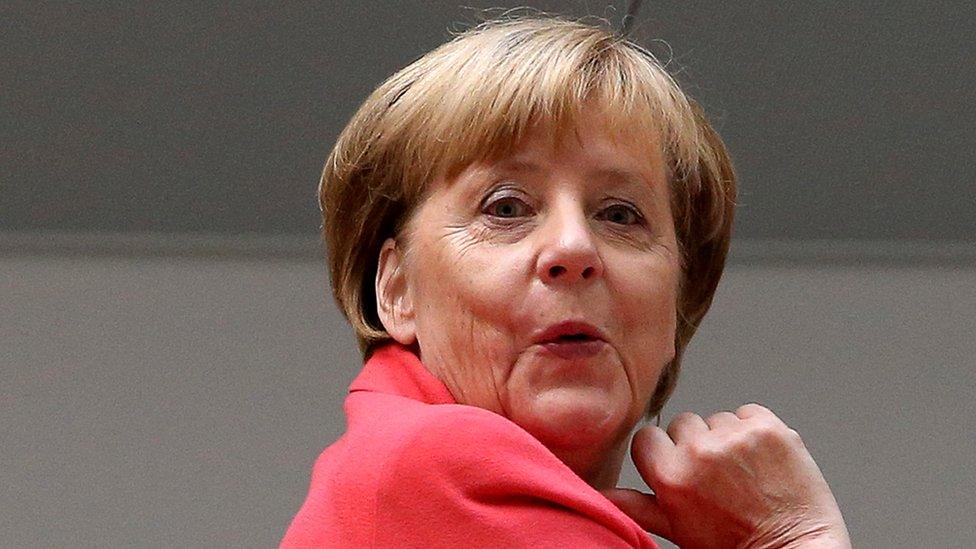
The leader of the EU's largest member state, German Chancellor Angela Merkel, has said "Brexit negotiations won't be easy" but that there's no need for the EU to be "nasty" to the UK during negotiations.
German leader since 2005, Ms Merkel will face a re-election battle in 2017. Her decision to welcome more than one million refugees to Germany is likely to be a big issue in that campaign.
N: Norway
Norway isn't a member of the EU, but is a part of the European Economic Area, the European Free Trade Association and the Schengen Zone.
Norway has been mooted as one of the models a post-Brexit UK could emulate after a "soft Brexit", but Prime Minister Erna Solberg said the UK "wouldn't like", external finding itself on the fringes of the EU after Brexit.
O: Orban
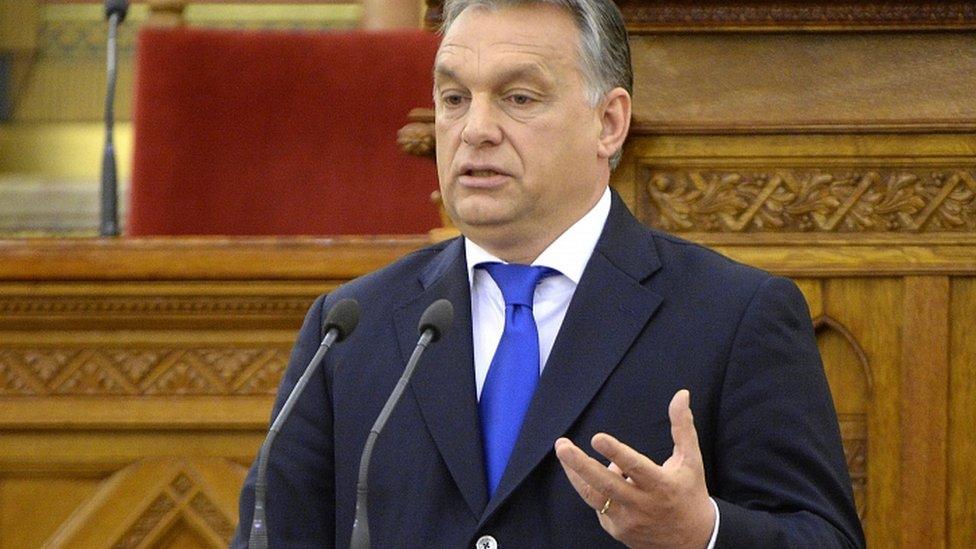
The Hungarian prime minister Viktor Orban is a strident critic of many aspects of the EU. Since the UK voted to leave, he has spoken of the opportunity it presents for change, saying: "We are at a historic cultural moment. There is a possibility of a cultural counter-revolution right now."
In October Mr Orban held a referendum of his own, calling on Hungarian voters to reject the EU's refugee quotas.
A member of the European Council, Mr Orban will be one of the EU leaders voting on the UK's Brexit negotiations.
P: Passporting
Nothing to do with the colour of your UK passport, this is the process by which London-based financial institutions can operate in the rest of the EU.
Passporting became a concern for global banks after the referendum, as they feared they could lose their rights to access the European single market.
International Trade Minister Mark Garnier suggested that such a thing could happen. When asked, external if passporting could end and be replaced by something else, he replied: "Exactly."
Q: Queue (Back of the)
US President Barack Obama: "UK is going to be in the back of the queue"
President Barack Obama enraged Leave campaigners before the referendum with his suggestion that a post-Brexit UK would find itself at the "back of the queue" to negotiate trade deals with the US.
Boris Johnson called his intervention "hypocritical", while Tory MP Dominic Raab called him a "lame-duck president".
In-coming US president Donald Trump has been much more positive... See entry below, for T.
R: Residency
The Commons Library says the position of UK citizens in the EU - and vice versa - after Brexit remains uncertain.
It does, however, suggest , externalthat people already using their freedom of movement to live in other EU countries are unlikely to be affected, as it would be difficult - practically and politically - to change their residency rights retrospectively.
S: Soft Brexit
The UK could give up its membership of the European Union, but still have access to the single market.
This would make trading with other European countries easier, as there would be less change after Brexit.
The price would most likely be some kind of free movement agreement - meaning that EU citizens could still move to the UK to live and work, even after Brexit.
T: Trump
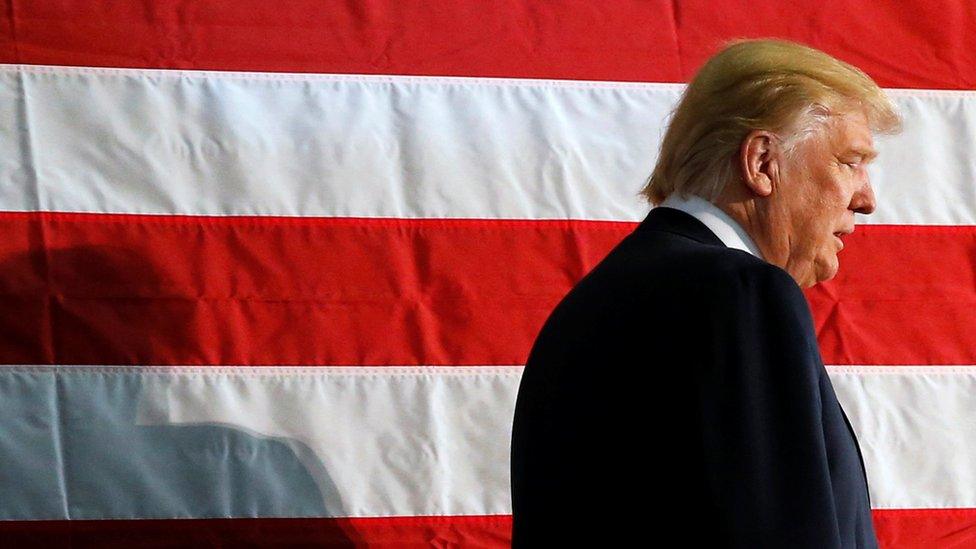
The incoming American president is a fan of Brexit, even saying in the days before his election victory over Hillary Clinton that a win for him would be "like Brexit plus-plus-plus."
He has befriended leading Brexiteer Nigel Farage - who was the first foreign politician to meet the president-elect after his win over Hillary Clinton.
Some in the UK, including Mr Farage, hope a Trump administration will move the UK to the front of the queue for trade deals with the US, heralding a new economic special relationship.
U: United Kingdom?
The UK's nations and regions weren't united in voting leave - Scotland, Northern Ireland and London voted to remain in the EU.
Scottish First Minister Nicola Sturgeon has suggested she will hold a second independence referendum if the UK goes for a hard Brexit.
In Northern Ireland there are mixed responses. Some fear the return of border controls - the Irish Taoiseach Enda Kenny is planning an a summit on the issue. Meanwhile, the border town of Newry has seen an influx of shoppers from the Republic, keen to take advantage of the euro's increased spending power.
V: Verhofstadt
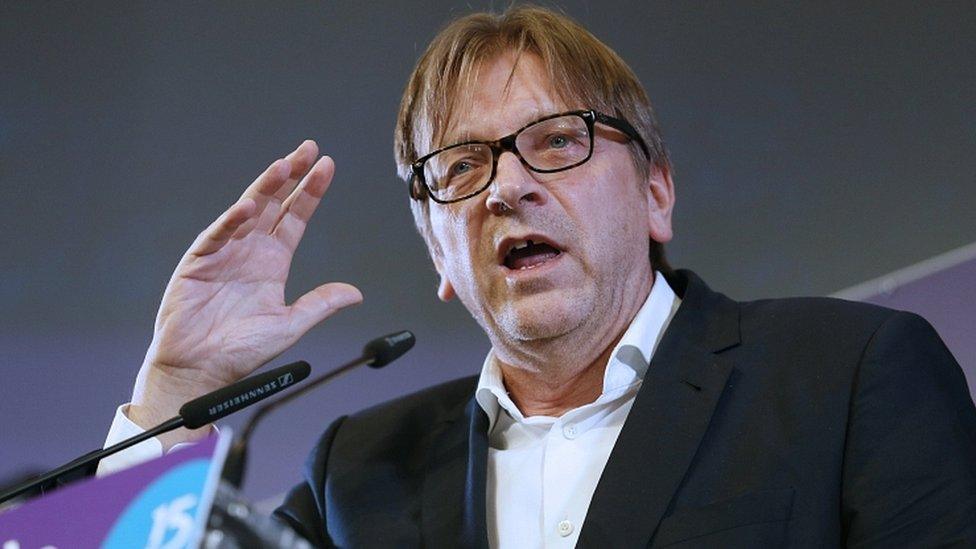
Former Belgian Prime Minister and the European Parliament's lead Brexit negotiator, Guy Verhofstadt, has suggested he is unwilling to negotiate on the free movement of people, saying: "European values will never be up for negotiation."
He has already held a preliminary meeting with David Davis (See entry for D, above) which the two said afterwards "a good start". And he has since warned that the European Parliament would negotiate directly with the British if EU leaders "don't take the parliament's role seriously".
W: Workers
Home Secretary Amber Rudd sparked controversy with an announcement that firms would have to publish the percentage of overseas workers they hired - although the government later rowed back on the idea.
There is also uncertainty over what could happen to UK employment rights, as some things like agency workers' rights and limitations on working time are guaranteed by EU law.
X: Xenophobia
Police figures showed a rise in religious or racially motivated hate crimes in the weeks following the EU referendum.
In response, the government launched a new hate crime action plan, external to combat the increase.
Y: Yeast
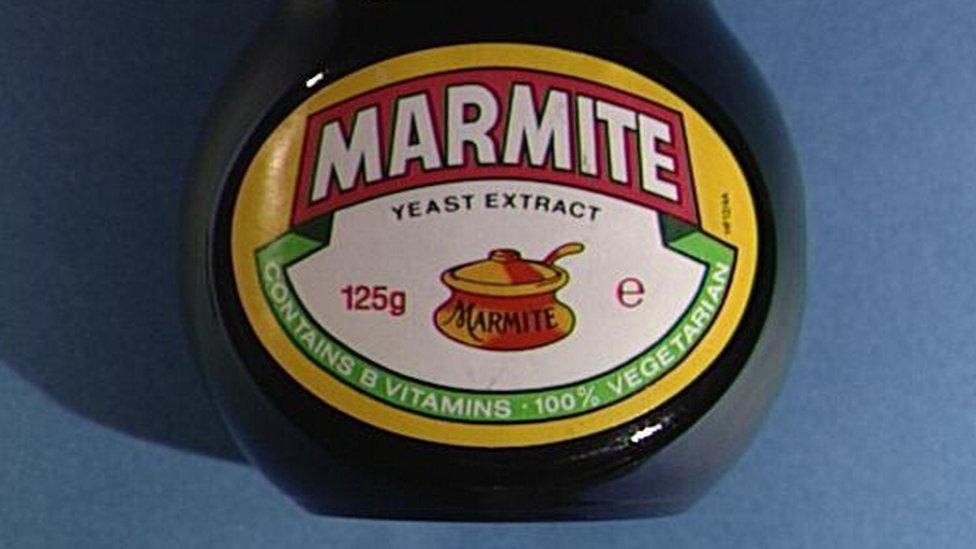
Or more specifically, the yeast-based spread Marmite.
The falling value of the pound after the UK voted to leave the EU led to a row between Tesco and the manufacturer, Anglo-Dutch corporation Unilever, which wanted to raise the price of Marmite and other products.
The companies resolved their differences, which came after Unilever said the weak pound made selling its wares in the UK less profitable.
Z: Zagreb
The capital of Croatia, the EU's newest member state.
The Croatian Foreign Minister Miro Kovac expressed his concerns about the effect Brexit could have on the EU's growth plans, saying, external: "We also want stability in southeastern Europe and we will work so that Brexit does not have too much effect on the enlargement process."
Croatia's fellow Balkan states Albania, Bosnia, Kosovo, Macedonia, Montenegro and Serbia are all currently in the process of joining the EU.